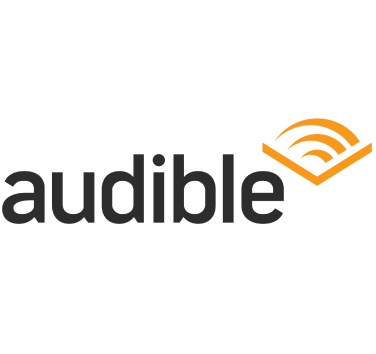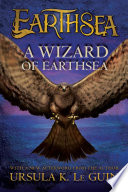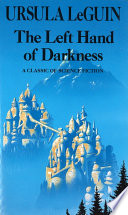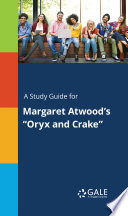Discover our guide to the best authors like Ursula Le Guin - whether you love science fiction or feminist works that tackle social concerns, we’ve got you covered!
Born in 1929, Ursula Le Guin was a distinguished writer who revolutionized speculative fiction. Born to a writer mother and an anthropologist father, learning was in her blood. She attended Radcliffe College for her undergraduate degree and Columbia University for her graduate work.
Le Guin and her husband raised their family in Oregon, and she continued writing until her death in 2018. Throughout her life, she won the National Book Award, seven Hugo awards, the Howard Vursell Award of the American Academy of Arts and Letters, and six Nebula awards. Though she didn’t win, she was also a finalist for the Pulitzer Prize.
What set Le Guin apart was her ability to write across genres and forms. She authored 23 novels, 12 short story volumes, 13 children’s books, 11 volumes of poetry, and five essay collections, with works translated into 42 different languages. Her masterpiece A Wizard of Earthsea has sold millions of copies. The Left Hand of Darkness, her groundbreaking science fiction work, explored gender roles and morality, establishing her as a pioneering feminist author.
In 2025, Le Guin’s influence continues to shape contemporary speculative fiction. Her exploration of anthropological themes, environmental concerns, and social justice resonates powerfully with modern readers facing climate change, social inequality, and questions about technology’s role in society. Young writers cite her as an inspiration for creating inclusive, thoughtful science fiction that doesn’t shy away from complex moral questions.
Table of Contents
Open Table of Contents
Must-Read Authors Like Ursula Le Guin
For more fantasy recommendations, you might also enjoy exploring best fantasy authors, authors like Brandon Sanderson, authors like George R.R. Martin, or discover our comprehensive guide to best fantasy authors.
1. Margaret Atwood, 1939 -

Margaret Atwood via Wikipedia Public Domain
Margaret Atwood writes speculative and dystopian fiction novels that showcase the challenges of gender and politics in modern society. Her book The Handmaid’s Tale, published in 1985, became the source material for a Hulu television series in which the author herself has a cameo appearance. As a child, she did not attend formal school until she was 12, but she was a voracious reader.
Atwood attended Victoria College in Toronto and Harvard University, and in 1961 she published Double Persephone, a book of poetry that earned an E.J. Pratt Medal. Her novels earned her literary fame, starting with Bodily Harm in 1981. The Handmaid’s Tale won several awards, including an Arthur C. Clarke award, a 1985 Governor General’s Award, and a 1986 Booker Prize.
In 2025, Atwood’s work feels more relevant than ever. The Testaments, published in 2019 and also a Booker Prize winner, continues exploring themes of reproductive rights and authoritarian control that resonate strongly with contemporary political discussions. Her climate fiction trilogy, starting with MaddAddam, addresses environmental collapse with the same prescient vision that made The Handmaid’s Tale prophetic.
“Better never means better for everyone… It always means worse, for some.”
Margaret Atwood, The Handmaid’s Tale
2. Octavia E. Butler, 1947 - 2006
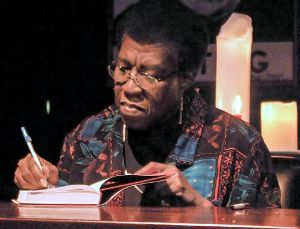
Octavia E. Butler via Wikipedia Public Domain
Octavia E. Butler wrote science fiction books that won several Nebula and Hugo awards. Born in Pasadena, she attended California State University but decided to take writing courses through UCLA instead. Initial writings created for school grabbed the attention of known science-fiction writers, who encouraged her to keep writing.
Eventually, Butler sold short stories to Harlan Ellison for his anthology before settling down to write her own novels, starting with the Patternmaster series’ first book, Wild Seed in 1976, followed by five additional books in the series. The Xenogenesis series came next, starting with Dawn in 1984. Butler has two standalone novels and multiple short stories and essays.
As a Black woman writing science fiction in a predominantly white, male genre, Butler brought unique perspectives to themes of race, gender, and power. Her work anticipated many contemporary discussions about identity, consent, and systemic oppression. In 2025, Butler’s influence on science fiction continues growing, with adaptations of her work reaching new audiences and inspiring a generation of diverse writers exploring similar themes.
“In my years, I have seen that people must be their own gods and make their own good fortune. The bad will come or not come anyway.”
Octavia E. Butler, Wild Seed
3. Samuel R. Delany, 1942 -
American writer and literary critic Samuel R. Delany writes science fiction novels that explore themes of society and sexuality. Educated at City College of New York, the author published his first science fiction novel at 20. The work’s success allowed him to drop out of college. Between 1962 and 1976, Delany published at least one book a year.
His 1966 novel Babel-17 was his first award winner, earning the Nebula Award and being nominated for a Hugo Award. In 2002, he was inducted into the Science Fiction Hall of Fame, and in 2013 he was named the Damon Knight Memorial Foundation Grand Master by the Science Fiction and Fantasy Writers of America.
Delany’s groundbreaking exploration of linguistics, sexuality, and race in science fiction predated many contemporary conversations about representation and identity. His work remains academically influential, studied in universities for its sophisticated treatment of language, consciousness, and social structures. In 2025, as artificial intelligence raises questions about language and consciousness, Delany’s insights feel remarkably prescient.
“When you learn another tongue, you learn the way another people see the world, the universe.”
Samuel R. Delany, Babel-17
4. Anne McCaffrey, 1926 - 2011
Anne McCaffrey was the first woman to earn a Hugo Award, which she won for her 1968 novel Weyr Search, and a Nebula Award, which she won for her 1969 novel Dragonrider. In 1978, her novel The White Dragon was one of the first science fiction works to hit the New York Times bestseller list. McCaffrey was born in Massachusetts and had dual citizenship in the United States and Ireland.
In the 1950s, she launched her writing career with two short story publications, which caught the literary world’s attention. She was a prolific writer with multiple series, including the Dragonriders of Pern series, the Tower and the Hive Sequence, and the Talent Series. Her body of work won her the Margaret A. Edwards’ Lifetime Achievement Literary Award.
McCaffrey’s dragons-and-riders concept influenced countless fantasy and science fiction works that followed. Her blend of science fiction and fantasy elements, along with strong telepathic bonds between humans and creatures, established tropes still popular in 2025. Her pioneering role as a successful female author in science fiction paved the way for many writers who followed, including current bestselling authors exploring similar human-animal bonds in speculative fiction.
“Exchange information, learn to speak sensibly about any subject, learn to express your thoughts, accept new ones, examine them, analyze. Think objectively. Think toward the future.”
Anne McCaffrey, The White Dragon
5. Ernest Hemingway, 1899 - 1961

Ernest Hemingway via Wikipedia Public Domain
American author Ernest Hemingway wrote novels and short stories with a style known for its understated, economic prose. His work strongly influenced 20th-century fiction writing; in 1954, he earned the Nobel Prize in Literature. In 1923, he published his first book, Three Stories and Ten Poems, launching his literary career.
The Old Man and the Sea was one of his most famous works, but he also wrote Death in the Afternoon in 1932 and A Farewell to Arms in 1929. Though his works were not science fiction, they tackled social and political topics with the same fearless examination of human nature that made Le Guin’s work so compelling.
While Hemingway’s style differs dramatically from Le Guin’s, both authors shared a commitment to exploring fundamental human experiences through deceptively simple prose. In 2025, Hemingway’s influence on literary science fiction continues through authors who blend genre elements with literary techniques, creating works that examine humanity’s place in an uncertain world with both emotional depth and philosophical rigor.
“Every day is a new day. It is better to be lucky. But I would rather be exact. Then when luck comes you are ready.”
Ernest Hemingway, The Old Man and the Sea
6. Kate Chopin, 1850 - 1904
Kate Chopin wrote about the inner lives of women, shedding light on what life was like for females in the late 1800s and early 1900s. The Awakening is her primary novel, published in 1899. The work was initially not well received by critics of her day because of its risqué topic, but in the 1950s, it was rediscovered.
In the book, she writes of the intimate desires of her protagonist, which shocked readers because of the patriarchal nature of society at the time. Today, however, it remains one of the top favorite novels in literature studies. The work earned her accolades as an early feminist writer, which is why she’s considered among authors like Le Guin.
Chopin’s fearless exploration of women’s autonomy and desire predated many themes that Le Guin would later explore in science fiction contexts. In 2025, as conversations about bodily autonomy and women’s rights continue evolving, Chopin’s century-old insights remain startlingly relevant. Her influence can be seen in contemporary speculative fiction that uses future or alternative settings to examine present-day gender dynamics.
“I would give up the unessential; I would give up my money, I would give up my life for my children; but I wouldn’t give myself. I can’t make it more clear; it’s only something I am beginning to comprehend, which is revealing itself to me.”
Kate Chopin, The Awakening
7. Tamora Pierce, 1954 -

Tamora Pierce via Facebook
Tamora Pierce lands on this list because of her focus on science fiction and fantasy books written for young adult audiences. Born in Pennsylvania, Pierce started reading early and began writing in sixth grade, inspired by the work of Tolkien. While studying at the University of Pennsylvania, she wrote The Song of the Lioness quartet.
The first book in the quartet, Alanna: The First Adventure, was published in 1983. She is also the author of the Protector of the Small, The Tricksters, Beka Cooper, and The Immortals series. Pierce’s work features strong female protagonists who challenge traditional gender roles within fantasy settings.
In 2025, Pierce’s influence on young adult fantasy continues growing as new generations discover her empowering stories. Her straightforward approach to depicting capable, complex young women has inspired countless authors creating diverse, inclusive fantasy worlds. Like Le Guin, Pierce uses fantasy settings to examine real-world issues of power, identity, and social justice, making her work both entertaining and thought-provoking for modern readers.
“Alan, you seem to think we won’t like you unless you do things just like everyone else. Have you ever thought we might like you because you’re different?”
Tamora Pierce, Alanna: The First Adventure
8. Mercedes Lackey, 1950 -
Author Mercedes Lackey writes novels set in the fantasy world of Velgarth. Her books allow human and non-human main characters to interact and explore the challenges of differing cultures and social norms. A prolific writer, she publishes about five books a year and has over 140 books to her name.
Lackey became fascinated with science fiction in middle school when she read a James H. Schmitz book. When she found her public library didn’t have enough books for her needs, she started writing for herself. After discovering fan fiction, her writing grew even more, and in 1987 she published her first novel, Arrows of the Queen. In 2022, she won the Dragon Award for the Best Alternative History Novel for The Silver Bullets of Annie Oakley.
Lackey’s extensive worldbuilding and exploration of telepathic bonds between humans and magical creatures echo many themes Le Guin explored. In 2025, her continued productivity and engagement with fan communities demonstrate how speculative fiction authors can maintain long-term careers while adapting to changing reader expectations and publishing landscapes.
“My kith and kin have long since vanished into time.”
Mercedes Lackey, Arrows of the Queen
9. C.J. Cherryh, 1940 -
C.J. Cherryh is the pen name of Carolyn Janice Cherry, a writer of speculative fiction works. With over 80 books to her name, she has won several awards, including Hugo Awards for Downbelow Station, her 1981 novel, and Cyteen, her 1988 novel. When she started writing novels, her editor told her to add a silent “h” to her name because “Cherry” sounded too much like a romance author.
Cherryh was born in Missouri but grew up in Oklahoma. When she was 10, she got frustrated with the cancellation of Flash Gordon, her favorite television show, and started writing episodes. This sparked a love for writing, but she studied Latin when she attended the University of Oklahoma. With her degree, she taught Latin and literature in the public school system and started writing novels in her spare time.
In 1976, she published Gate of Ivrel and Brothers of Earth, her first two novels, and her writing career began in earnest. To create the fictional worlds in her books, she creates her own histories, archaeology, and languages. One of her more recent works, her 2020 novel Alliance Rising, won a Prometheus Award for Best Novel.
Cherryh’s meticulous approach to creating alien cultures and her exploration of first contact scenarios share DNA with Le Guin’s anthropological approach to science fiction. In 2025, as humanity grapples with artificial intelligence and potential future contact with extraterrestrial life, Cherryh’s thoughtful examination of communication across different forms of consciousness feels particularly relevant.
“A bizarre hysteria, perhaps, that point which many reached here, when anger was all that mattered. It led to self-destruction.”
C.J. Cherryh, Downbelow Station
10. Robin Hobb, 1952 -
Robin Hobb is one of the pen names for Margaret Astrid Lindholm Ogden. Under this pen name, which she adopted in 1995, she writes epic traditional fantasy books. The Realm of the Elderlings series is her primary focus in this genre. It has earned her several awards, including the David Gemmell Award for the 2018 novel Assassin’s Fate, the Endeavour Award for the 2007 novel Forest Mage, and the World Fantasy Award for Life Achievement, which she earned in 2017.
Hobb enjoys gardening and working on her small hobby farm in Washington State when she is not writing. Her deep character development and exploration of the psychological costs of power and magic create emotionally complex narratives that resonate with readers seeking substantial fantasy experiences.
Like Le Guin, Hobb excels at examining the personal costs of wielding power and the complex relationships between humans and the natural world. In 2025, as environmental consciousness grows and readers seek fantasy that grapples with real-world concerns, Hobb’s nuanced approach to magic as something that comes with genuine consequences appeals to sophisticated audiences seeking depth in their speculative fiction.
“Never do what you can’t undo until you’ve considered well what you can’t do once you’ve done it.”
Robin Hobb, Assassin’s Fate
These authors share Ursula Le Guin’s commitment to using speculative fiction as a vehicle for examining fundamental questions about society, identity, and human nature. Each brings unique perspectives to themes of power, gender, race, and environmental responsibility that continue shaping contemporary discussions. Whether through dystopian futures, alien civilizations, or magical realms, these writers create worlds that illuminate our own while entertaining and challenging readers to think differently about the possibilities and perils facing humanity.

